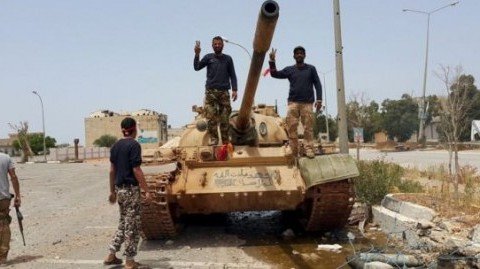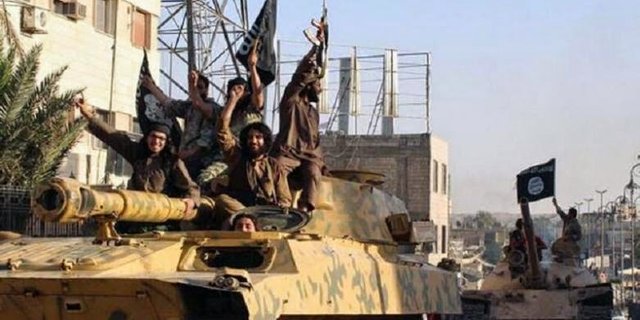Rebels claim breakthrough in Aleppo

Syrian rebels aligned with jihadi forces say they have broken a weeks-long siege in the northern city of Aleppo, a symbolic and strategic victory that sent crowds of residents from its besieged districts celebrating in the streets.
Pro-government media denied the rebel advance, but video and photos uploaded by rebels and opposition activists suggest that rebels at least temporarily broken through the siege on Saturday night.

Though it is unclear the opposition’s advances will hold, the gains are a surprising victory against President Bashar al- Assad’s forces, who have been helped by Russian air power.
Syria’s economic hub before the war, Aleppo has been divided since 2012 between President Bashar al-Assad’s forces in the west, and opposition fighters in the east. After five years of war, the northern city has become the rebels’ last urban stronghold and a critical battleground as Mr Assad, backed by Russia, has tried to gain leverage ahead of peace talks that were expected later this month.
Residents said rockets and air strikes were raining down on the city on Saturday night in the hours following the rebel breakthrough. “There is crazy shelling, you can hear it all over the city,” said Aleppo activist Hozeifa Dhaman. “The rebels are still pushing and the battle is ongoing.”
Moscow intervened on Mr Assad’s behalf last September by launching air bombardments to turn the tide of the war in favour of the Syrian president. But while Russian strikes have helped regime forces regain the advantage, pro-Assad forces on the ground have struggled to hold territory, despite backing from Lebanese Shia guerrilla force Hizbollah, Iranian forces, and Shia militia.
If rebels can maintain their positions or advance in what they have dubbed “The Great Battle for Aleppo”, they could not only open routes to the city’s rebel-held half, but could themselves impose a siege against regime-held districts.
Rebel leaders have denied this is their aim — they say instead they will try to advance into the regime-held side of the city. But either possibility suggests more bloody days ahead for the city, seen as a crucial prize to both sides.
“Freedom is coming, freedom is coming” chanted a group of men, clapping as they marched down the streets in a video uploaded on social media after reports of the rebel breakthrough were released. The sound of gunfire was still ringing in the air.
State news agency SANA denied the rebels claims of advances, which happened in the Ramousseh area. “SANA’s correspondent confirms there is no truth to the rumours spread by the (pro-opposition) media who are partners in the crime of Syrian bloodshed that terrorist groups control the Rammouseh roundabout in the south of Aleppo city,” it said.
Despite deteriorating conditions in Aleppo, Russia and the US, a lukewarm backer of the opposition, have been trying to reach a deal to jointly target jihadi forces while sparing other rebel groups. They say this will lay the groundwork for negotiations that now look much more remote.
Rebel-held Aleppo has been blockaded for weeks, with food and fuel growing scarce. Hospitals have been repeatedly bombed. “The situation has been exhausting, the shelling hasn’t stopped,” said activist Abdo Khudr. “All the shops have been shut down. All we have left to eat are lentils, bulgar and rice.”
Despite expressing relief the siege could soon end, some moderate rebel leaders worry that a victory in Aleppo will strengthen the hand of jihadi forces that have come to dominate many opposition areas in northern Syria.
The jihadi group Jabhat Fatah al-Sham has been the leading faction in the Aleppo offensive, and opposition forces acknowledge much of their advances would not have been possible without the group’s suicide bomb attackers. Fatah al-Sham was formerly known as Jabhat al-Nusra, the group that acted as al-Qaeda’s Syrian franchise. Two weeks ago, Nusra’s leader dissolved the group to create Fatah al-Sham and has called for unity among opposition forces.
Moderate rebels say such combined operations will make it harder to disentangle their forces from jihadis.